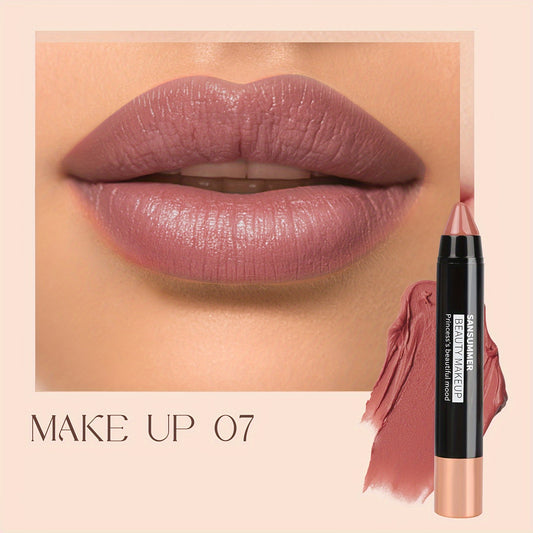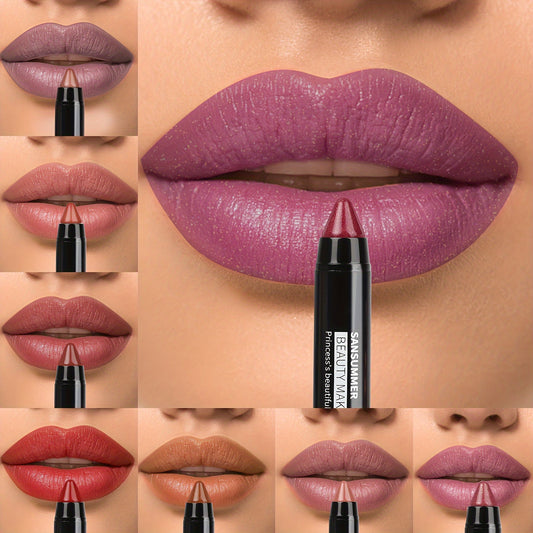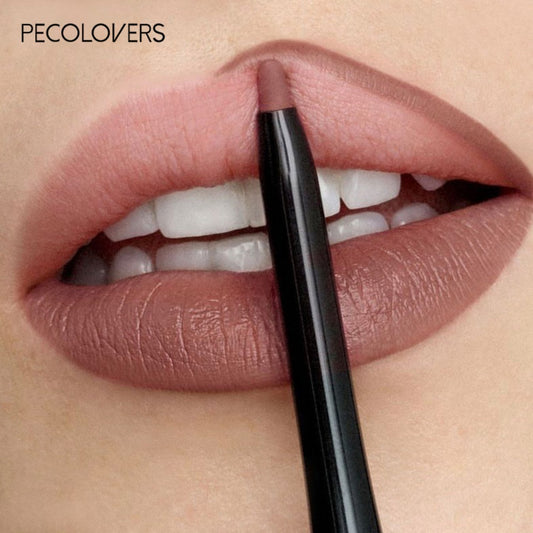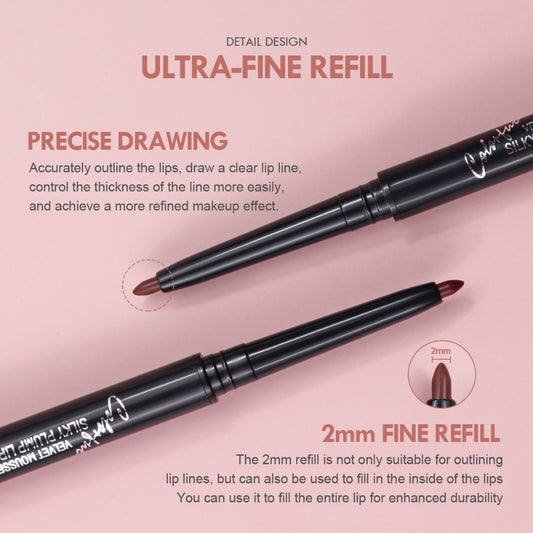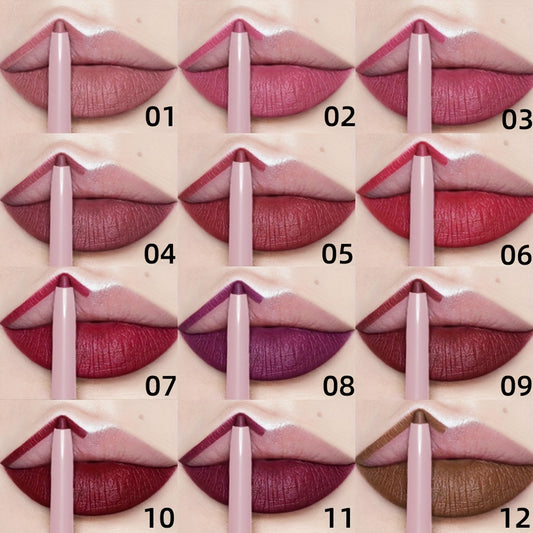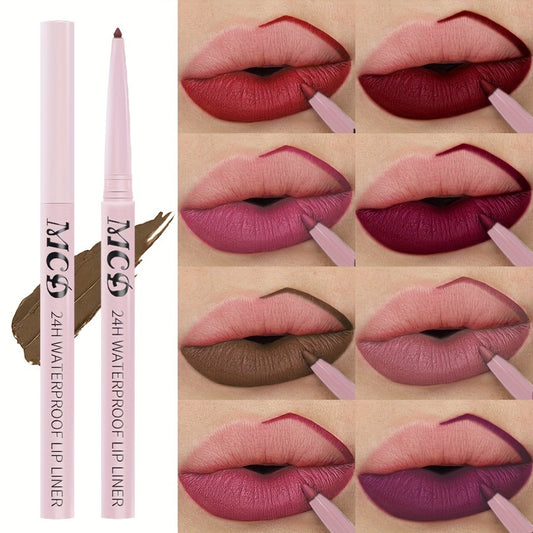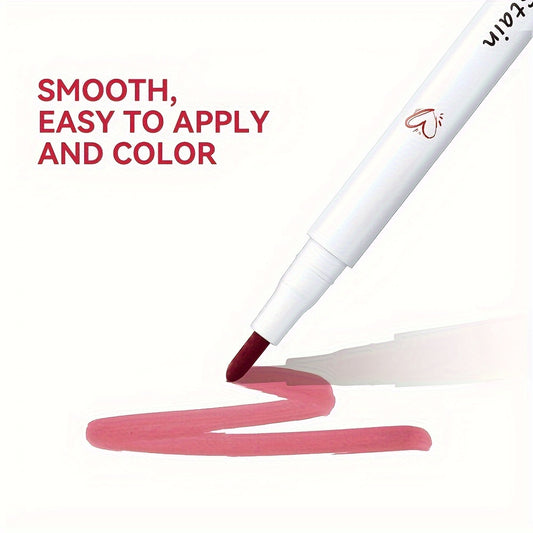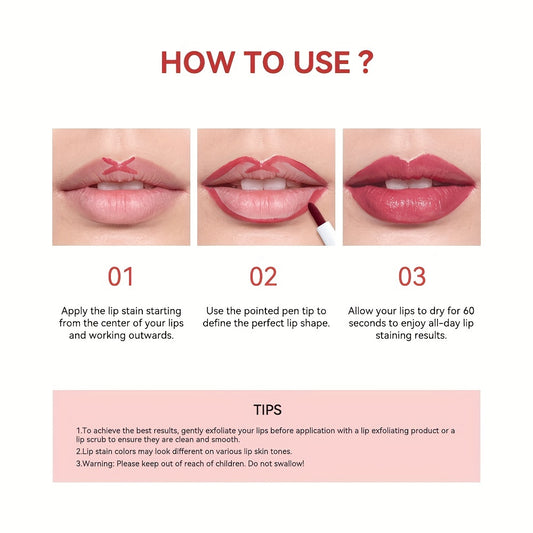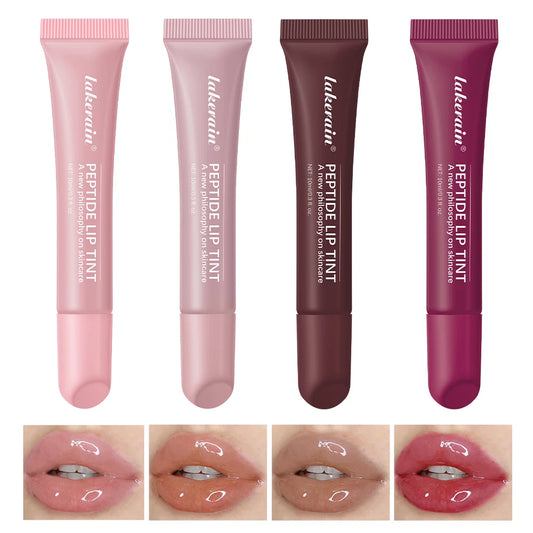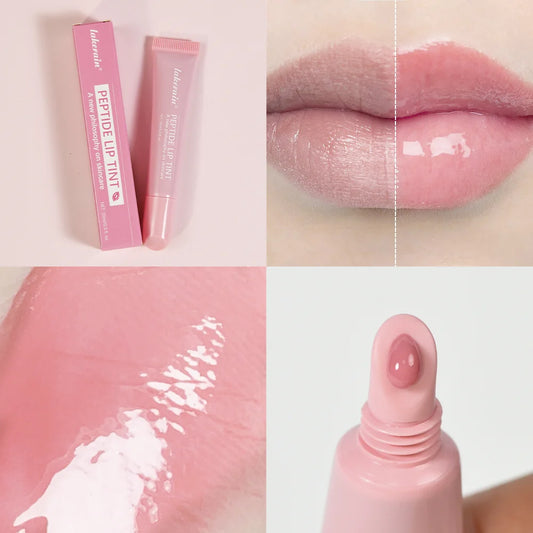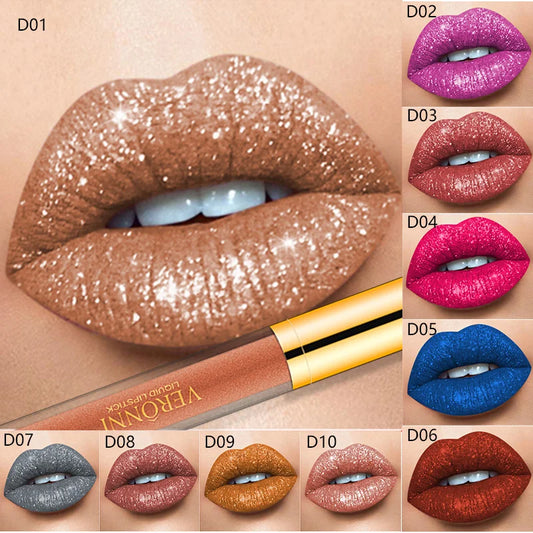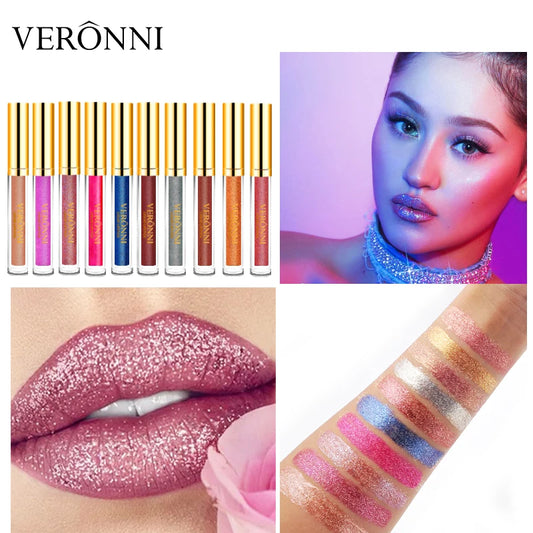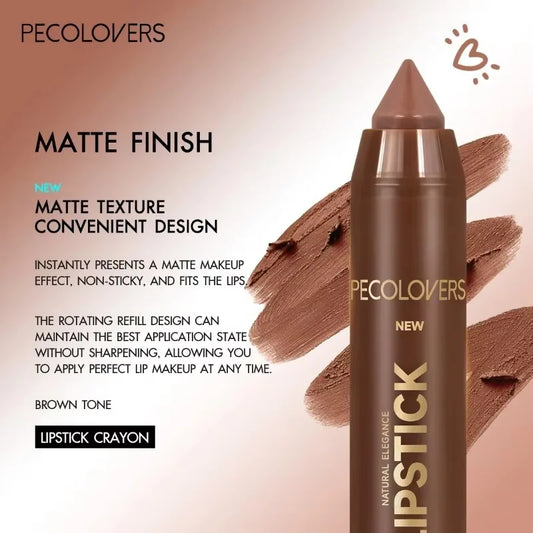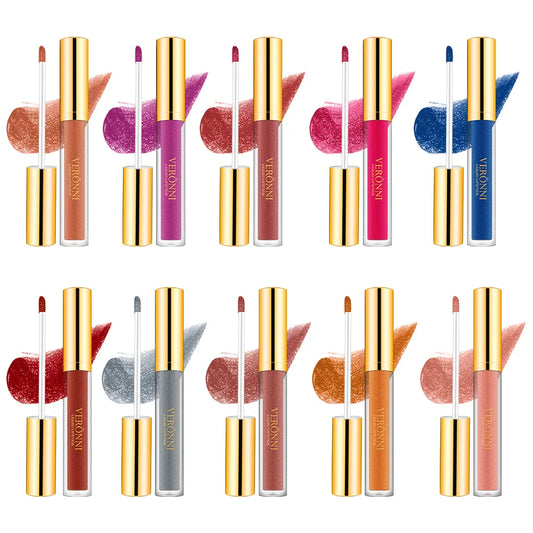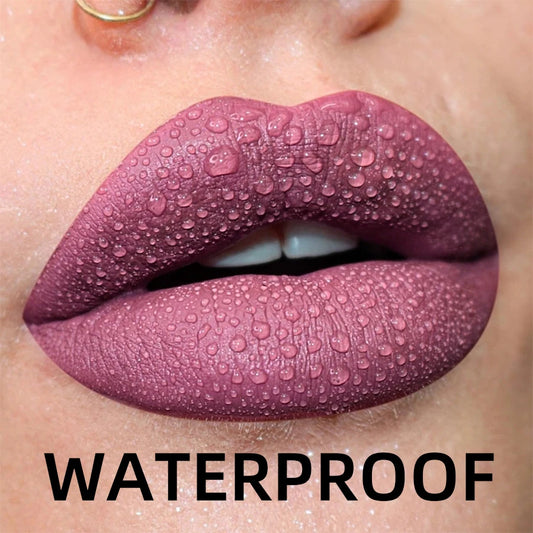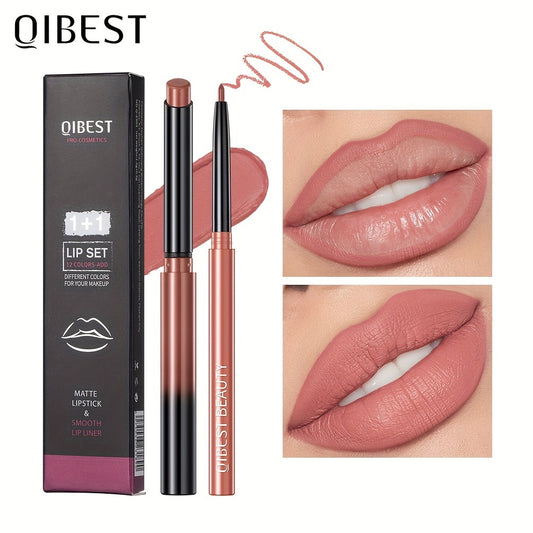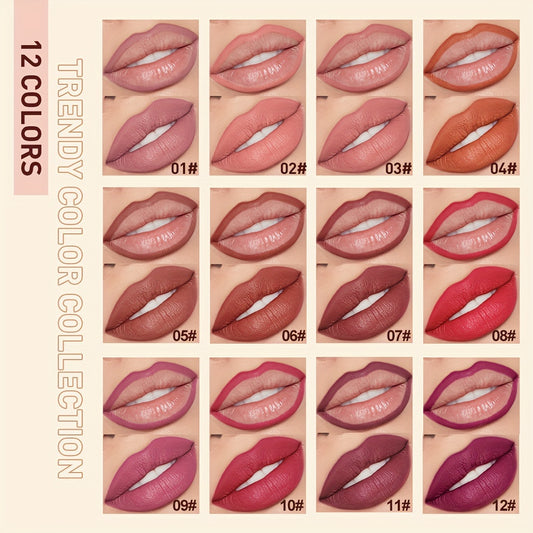Beyond Dryness: How Vitamin Deficiency Could Be the Culprit Behind Your Chapped Lips
Share
Ever had those super dry, cracked lips that just won't quit, no matter how much balm you slather on? It's really annoying. While things like cold weather or not drinking enough water are often the culprits, sometimes the problem runs a little deeper. Your dry lips could actually be a hint that your body isn't getting enough of certain important vitamins. It's not as common as other reasons for chapped lips, but it's definitely something to consider if your lips are always dry. Let's figure out what's going on with vitamin deficiency dry lips and how to get your lips feeling good again.
Key Takeaways
- Dry lips that stick around might point to a vitamin deficiency, even if it's not the first thing you think of.
- Things like B vitamins, iron, and zinc are super important for keeping your lips healthy.
- Paying attention to other body signs can help you figure out if a vitamin shortage is causing your lip problems.
- Your diet, health issues, and even what food you can get can mess with your vitamin levels.
- Sorting out vitamin deficiency dry lips often means changing what you eat, maybe taking supplements, and talking to a doctor.
Understanding The Connection Between Dry Lips And Vitamin Deficiency
So, your lips are feeling like sandpaper, and no amount of that fancy lip balm seems to help, right? It’s super frustrating. We usually blame the weather or maybe not drinking enough water, and yeah, those are often the culprits. But what if the problem is actually coming from the inside? Sometimes, persistently dry, chapped lips can be a sneaky sign that your body is missing out on some key vitamins. It’s like your body’s way of sending out a little distress signal, and your lips are the first to show it.
When Persistent Dryness Signals A Deeper Issue
If you’ve tried everything – different balms, staying hydrated, avoiding harsh winds – and your lips are still cracked and uncomfortable, it’s time to look beyond the usual suspects. This kind of stubborn dryness isn't just a minor annoyance; it could be your body telling you something important is missing. Think about it: your skin, including the delicate skin on your lips, needs a steady supply of nutrients to stay healthy and hydrated. When that supply gets disrupted, you might see the effects in places like your lips.
Beyond Common Causes: Recognizing The Signs
We all know the usual suspects: dry air, too much sun, maybe that spicy food you ate. But when those aren't the issue, what else could it be? It’s easy to assume a lip product will fix everything, but sometimes the problem is internal. Things like not eating a varied diet, or even certain health conditions, can lead to vitamin shortages that show up as dry, cracked lips. It’s about looking past the surface and considering your overall health picture. If your lips are constantly dry, and you've ruled out environmental factors, it might be time to consider if you're getting enough of the good stuff your body needs. For everyday lip care, a good lip balm can make a difference, but it won't fix an internal deficiency.
The Body's Subtle Clues For Nutrient Shortages
Your body is pretty smart, and it often gives us hints when something's not quite right. With dry lips, besides the obvious chapping, you might notice other things. Maybe your lips look a bit paler than usual, or they feel less elastic. These might seem like small changes, but they can be indicators of nutrient gaps. It's not always a dramatic symptom, but these subtle clues, when you pay attention, can help you piece together what might be going on. If you're experiencing persistent lip dryness along with other unexplained symptoms, it's worth investigating further.
- Constant dryness and flaking
- Slight discoloration or paleness
- Reduced elasticity, feeling less supple
- Painful cracks or sores that take a long time to heal
Sometimes, the simplest explanation is the most overlooked. When your lips are persistently dry, it's easy to get caught up in trying different products, but the root cause might be something your body needs more of internally.
Key Vitamins Crucial For Healthy Lips

So, you've got these persistently dry, maybe even cracked lips, and you're wondering what's up. Beyond just the weather or that new lip balm you tried, your body might be trying to tell you something. It turns out, a few key vitamins play a pretty big role in keeping your lips smooth and hydrated. When these nutrients are in short supply, your lips can really show it.
The Role Of B Vitamins In Preventing Lip Dryness
Think of B vitamins as the body's little helpers for cell repair and keeping things functioning smoothly. There are quite a few of them, and they all work together. For your lips, specific ones like B2 (riboflavin), B6, B9 (folate), and B12 are particularly important. They help maintain the skin's barrier and keep it from drying out. If you're not getting enough of these, you might notice your lips getting rough, sore, or developing those annoying cracks, especially at the corners of your mouth. People who have trouble absorbing nutrients or follow certain diets might need to be more mindful of their B vitamin intake.
Vitamin C's Impact On Collagen And Lip Elasticity
Vitamin C is a powerhouse when it comes to skin health, and your lips are no exception. It's a major player in making collagen, which is like the scaffolding that keeps your skin firm and elastic. When you don't have enough Vitamin C, your lips can lose some of that bounce, becoming more prone to dryness and chapping. Plus, Vitamin C is an antioxidant, meaning it helps protect your delicate lip skin from damage caused by things in the environment.
Vitamin E As An Antioxidant For Delicate Lip Skin
Speaking of antioxidants, Vitamin E is another star player for your lips. It's really good at protecting your skin cells from damage, kind of like a shield. This is super helpful for your lips because they're exposed to a lot of environmental stuff – sun, wind, you name it. Vitamin E also helps your skin hold onto moisture, which is exactly what you want when your lips are feeling dry. You can find it in things like nuts, seeds, and avocados.
Other Essential Nutrients For Lip Hydration
While we're talking vitamins, it's worth mentioning a couple of minerals that also matter for your lips. Zinc, for instance, is important for skin healing and keeping your immune system in check. If you're low on zinc, your skin, including your lips, might become dry and less resilient. Iron is another one. Ever heard of iron-deficiency anemia? Well, it can sometimes show up as cracks at the corners of your mouth or sores inside your mouth, alongside general lip dryness. Making sure you're getting a good mix of these nutrients can really make a difference in how your lips feel and look.
Identifying A Vitamin Deficiency Dry Lips Culprit
So, your lips are feeling like sandpaper, and you've slathered on every balm you own. It's frustrating, right? While we often blame the weather or maybe that new lipstick, sometimes persistent dryness is a signal from your body that something else is going on. When lip balm isn't cutting it, it's time to consider if a vitamin deficiency might be the real troublemaker. It's easy to overlook, but your lips can be a pretty clear indicator of what's happening internally.
When Lip Balm Isn't Enough: Persistent Chapping
If you're constantly reapplying lip balm, and your lips still feel rough, flaky, or even painful, that's a big clue. It suggests the problem isn't just on the surface. Think about it: if the issue were purely external, like dry air, a good balm would usually offer some relief. But when the dryness just won't quit, it points towards an internal imbalance. This kind of stubborn chapping can be a sign that your body isn't getting the nutrients it needs to keep your skin, including the delicate skin on your lips, properly hydrated and healthy. It's like trying to paint a wall without primer – the color just won't stick.
Accompanying Symptoms That Point To Nutrient Gaps
Dry lips are often not an isolated issue when a vitamin deficiency is involved. Your body might be sending out other signals too. Keep an eye out for these common companions to persistent lip dryness:
- Fatigue: Feeling unusually tired or drained, even after a good night's sleep.
- Mouth Sores or Cracks: Frequent canker sores or cracks at the corners of your mouth (angular cheilitis).
- Skin Changes: Dry patches, unusual redness, or a generally dull complexion elsewhere on your body.
- Brittle Nails or Hair Loss: These can also be indicators of nutrient shortages.
These additional symptoms, when paired with dry lips, paint a clearer picture that a deeper nutritional issue might be at play. It's about looking at the whole system, not just one part.
Ruling Out Environmental And Product Irritants
Before you resign yourself to a life of constant lip balm application, it's smart to play detective and rule out other common culprits. Have you recently switched to a new toothpaste or mouthwash? Some ingredients can be irritating. What about your skincare routine? Certain ingredients in facial products can migrate to your lips and cause dryness. And of course, environmental factors like harsh winds, very cold or hot weather, and prolonged sun exposure are classic causes of chapped lips. If you've considered these and your lips are still suffering, it strengthens the case for looking inward at your diet and nutrient intake. You might even want to try a gentle lip oil for a few days to see if that makes a difference, as it can offer hydration without some of the common irritants found in balms.
It's easy to get caught up in treating the symptom – the dry lips – without addressing the root cause. When your usual remedies aren't working, it's a sign to broaden your investigation beyond the obvious. Your body is a complex system, and sometimes the most visible issues are just the tip of the iceberg, pointing to internal needs that aren't being met.
Dietary Strategies To Combat Dry Lips

So, your lips are feeling like sandpaper, and you're wondering if it's more than just the weather? You're right to look at your diet. What you eat actually plays a pretty big role in how hydrated your skin, including your lips, stays. It’s like giving your body the building blocks it needs from the inside out.
Foods Rich In B Vitamins For Lip Health
B vitamins, especially B2 (riboflavin), are super important for keeping your lips from getting dry and cracked. If you're not getting enough, you might notice those little cracks at the corners of your mouth, or just generally sore lips. To get more B vitamins, try adding these to your meals:
- Dairy products: Milk, cheese, and yogurt are good sources.
- Leafy greens: Spinach, kale, and other dark leafy vegetables pack a punch.
- Eggs and lean meats: Chicken, fish, and eggs are solid choices.
- Whole grains: Think oats, brown rice, and whole wheat bread.
It’s not about eating one superfood; it’s about mixing things up.
Incorporating Vitamin C And E Into Your Diet
Vitamin C is a big deal for making collagen, which is what keeps your skin, including your lips, looking plump and healthy. Vitamin E, on the other hand, is like a shield, protecting your delicate lip skin from damage and helping it hold onto moisture. To boost your intake:
- For Vitamin C: Load up on citrus fruits like oranges and grapefruits, berries, bell peppers (especially red ones!), and broccoli. Even a simple glass of orange juice can help.
- For Vitamin E: Almonds and sunflower seeds are fantastic. Avocados are also a great source, and you can sneak them into salads or smoothies. Sweet potatoes are another good option.
Making sure you get a good mix of these vitamins can really make a difference in how your lips feel.
The Importance Of Zinc And Iron For Lip Integrity
Beyond the vitamins, don't forget about minerals like zinc and iron. Iron is key for carrying oxygen throughout your body, and a lack of it can sometimes show up as pale or dry lips. Zinc is important for skin repair and keeping your immune system in check, which indirectly helps your skin stay healthy. You can find these in:
- Iron: Red meat, beans, lentils, spinach, and fortified cereals.
- Zinc: Oysters (if you're brave!), beef, pumpkin seeds, chickpeas, and cashews.
Sometimes, just changing what's on your plate can be the simplest way to start fixing persistent lip dryness. It's about feeding your body what it needs to heal itself, from the inside out. Don't underestimate the power of a well-rounded diet.
When To Seek Professional Help For Dry Lips
Look, we all get chapped lips now and then, right? A bit of balm, maybe some extra water, and usually, things clear up. But what happens when that dryness just won't quit, no matter what you do? It’s like your lips are staging a protest, and no amount of chapstick seems to calm them down. That’s usually your cue that it’s time to stop guessing and start asking for help.
The Limitations Of Self-Diagnosis For Dry Lips
It’s super easy to fall down an internet rabbit hole trying to figure out why your lips are so rough. You read about weather, maybe you’re not drinking enough water, or perhaps it’s that new lipstick. And sure, those things can definitely play a part. But when your lips are persistently cracked, peeling, or just feel raw, and none of the usual fixes work, you might be missing a bigger picture. Relying solely on what you find online can lead you down the wrong path, potentially delaying proper treatment for something more significant.
Consulting a Healthcare Provider For Accurate Diagnosis
This is where a doctor or a dermatologist comes in. They’re the pros, after all. If you’ve tried all the home remedies and over-the-counter stuff without any luck, it’s time to make an appointment. Persistent dryness, especially when accompanied by other odd symptoms, is a signal that something else might be going on. Your doctor can actually run tests to see if you’re low on certain vitamins or minerals, like B vitamins, iron, or zinc, which we’ve talked about. They can also check for other skin conditions or even underlying health issues that could be causing your lip woes. It’s way better than just hoping for the best.
Targeted Supplementation Under Medical Guidance
Once you know what’s actually causing the problem, you can get specific. If tests show you’re deficient in, say, Vitamin B12, your doctor can recommend the right supplement and the correct dosage. It’s not about just popping any multivitamin; it’s about giving your body exactly what it’s missing. Taking too much of certain vitamins can actually be harmful, so getting professional advice here is really important. They’ll guide you on how to get your levels back to normal safely and effectively, helping your lips heal from the inside out.
- Persistent Cracking or Bleeding: If your lips are constantly breaking open, even with regular moisturizing.
- Severe Peeling or Scaling: Beyond a little flakiness, if large pieces are peeling off.
- Accompanying Symptoms: Look out for other signs like fatigue, hair loss, or changes in your skin or nails, which could point to a broader deficiency.
- No Improvement with Standard Care: If you’ve consistently used good lip balms and hydration methods for weeks with zero change.
If your lips are super dry and don't get better with regular care, it might be time to ask a doctor or a skin expert for help. They can figure out why your lips are so dry and suggest the best way to fix it. Don't wait too long if things aren't improving! Visit our website to find the perfect lip balm that can help keep your lips soft and healthy.
So, What's the Takeaway?
Look, we all get chapped lips sometimes. It's usually not a big deal and a bit of balm or more water fixes it. But if you've tried all the usual tricks and your lips are still stubbornly dry and cracked, it might be time to think outside the box. Your lips could be trying to tell you something about your vitamin levels. It's not the most common reason, sure, but it's definitely worth considering if your lip situation just won't improve. Paying attention to your diet and maybe chatting with your doctor could be the key to finally getting those lips back to feeling smooth and comfortable again. Don't just keep slathering on balm if the real issue is happening inside.
Frequently Asked Questions
What are the main vitamins that help keep lips from getting dry?
Several vitamins are key players in keeping your lips smooth and hydrated. B vitamins are really important for cell health and keeping moisture in. Vitamin C helps build collagen, which makes your lips stretchy and strong. And vitamin E is like a shield, protecting your delicate lip skin from damage.
How can I tell if my dry lips are caused by a vitamin shortage?
If your lips are constantly dry and chapped, even when you use lip balm a lot, it might be a sign. Also, look for other clues like feeling tired all the time, sores in your mouth, or changes in your skin. These can sometimes point to your body needing more of certain vitamins.
What foods should I eat to help my dry lips?
To get more of the good stuff for your lips, try eating foods rich in B vitamins like whole grains, eggs, and leafy greens. For vitamin C, reach for fruits like oranges and strawberries. Vitamin E is found in nuts and seeds. Don't forget about zinc and iron, found in meats, beans, and spinach, which also help keep your lips healthy.
Can lip balm or lip balm ingredients make my lips worse?
Yes, sometimes! Certain ingredients in lipsticks or even some lip balms can actually dry out your lips more. Flavored ones can sometimes cause irritation too. It's a good idea to check the ingredients or try a very simple, plain lip balm if you're having trouble.
Besides vitamins, what else can cause dry lips?
Lots of things! The weather is a big one – wind, cold, and sun can dry out your lips. Not drinking enough water is also a common cause. Even things like certain toothpastes, hormonal changes, or habits like picking or licking your lips can lead to dryness.
When should I see a doctor about my dry lips?
If you've tried changing your diet, using better lip products, and staying hydrated, but your lips are still super dry and painful, it's time to see a doctor. They can figure out if a vitamin deficiency or another health issue is the real problem and tell you the best way to fix it.

